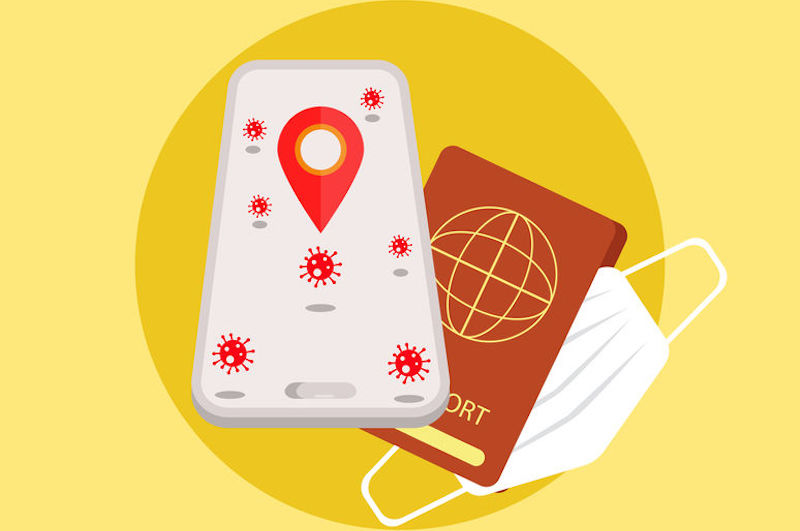EU Covid vaccination passports
Lina Kolesnikova describes the initiative that is taking off in the EU this summer in the hopes of increasing travel and boosting tourism and trade.

Such an initiative is largely supported and remains a top priority for the southern countries of the EU, which hope to save this summer’s tourism without increasing transmission of Covid-19. It was the Greek Prime Minister Kyriakos Mitsotakis, who came forward and suggested the creation of such documents in Europe. Image: zonicboom/123rf
On March 17 2021, the European Commission presented a proposal to create a Digital Green Certificate to facilitate the safe, free movement of citizens within the EU during the Covid-19 pandemic. Digital Green Certificates, which have earned the nickname of ‘vaccination passports’, will be valid in all EU member states and will include non-EU countries such as Norway, Iceland and Switzerland.
The documents would take the form of a standardised certificate that confirms the status of an EU citizen’s immunity to the virus, ie how they are protected as much as current technologies permit. The initiative follows Israel’s model, where its rapid vaccination rate led to it having the highest number of vaccinated people per capita and, subsequently, allowed for less restrictive living conditions for those who had been vaccinated. To lessen the restrictions while keeping controls in place, Israel introduced the certificates. However, Israeli authorities admit that it has been difficult to check that all necessary rules are being followed by businesses and citizens. Within the EU’s borders, Danish Coronapas was launched this May, following the vaccination of all the high-risk groups and the over-50s.
The vaccination passports initiative was welcomed by several countries, but has been severely criticised by others regarding medical, social, ethical and legal issues. The Belgian Prime Minister Alexander De Croo, has repeated several times that he is not in favour of such an initiative, which in his opinion grants: “Privileges to people who have been vaccinated,” when compared with people who have not, owing to the lack of vaccines or personal decisions.
It is a controversial point to decide whether the liberties of some people should be restricted for the benefit of all. These people might not have been vaccinated for reasons that might depend on their personal circumstances and decisions, or for other legitimate reasons.
One particularly important issue to tackle is of creating and sharing the databases of vaccinated people before summer. To help the project be a success, it is necessary to have access to a country's official vaccination records and a secure method of identifying an individual and linking them to their health record.
There are many concerns around privacy and sensitive information such as individuals’ health conditions. When vaccination campaigns began, some patients in the high-risk groups complained that call centre employees who phoned them had been granted access to their medical files. Worryingly, there are also rumours that some employees recorded such calls and might have considered using them for purposes not related to vaccination.
As required by the GDPR regulations, all data must be stored securely and access to it properly authorised and controlled. Nevertheless, a degree of access to some data is indispensable if it is to be used for confirming an individual’s vaccination status.
The main question here is how to find the right balance between making the vaccination certificates a proper and useful tool while not jeopardising the rights of those people who have decided not to have the vaccine, or who are unwilling to share their data? There are already many reasons for society to feel polarised and split, and it is dangerous to add more reasons for such sentiments.
The European Commission has provided an explanation about how these certificates will look and what information will they include. A Digital Green Certificate will provide digital proof that a given person has either been vaccinated against Covid, has received a negative test result, or has recovered from the illness.
The safe and secure certificate will be available in a digital or paper format and feature a QR code, with information written in the national language as well as in English. They will be free of charge and valid in all EU countries.